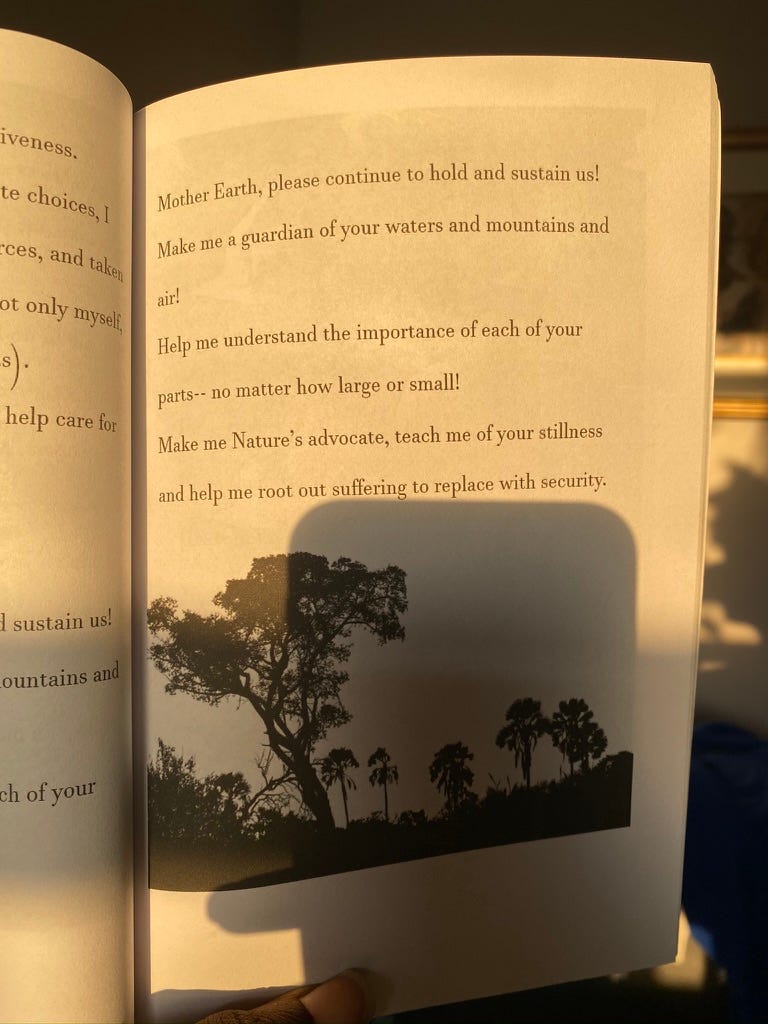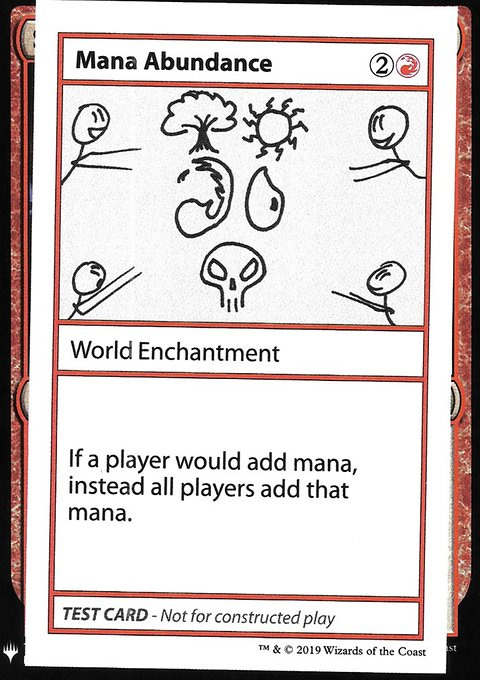Finally Healing My Relationship With the Energy of Abundance
🎧 Jupiter day thoughts, contextualizing luxury & liberation.
There was always some kind of disconnect for me with the term “abundance” throughout my spiritual walk, and I realize it was because material abundance was mostly linked to the ability to consume. As much as I struggled and wanted to be able to afford certain things, that didn’t feel right to me. Or at the very least, it felt incomplete.
For years I have thought a lot about the concept of luxury, what it means, and if there’s a such thing as ethical luxury. I came to the conclusion that there isn’t, because at the core, luxury is about excess. In June of 2023, I wrote a little bit about this, exploring the various definitions of the word “luxuriate” and how it related to growth and abundance. This piece is a more militantly specific update on my perspective, undoubtedly influenced by how much I was radicalized just a few months later in October of 2023 when the Israeli occupation escalated into a live-streamed genocide of the Palestinian people.
For awhile now, it has been quite normal to see people defining luxury for themselves. I’ve seen people say things like “luxury means having time to enjoy my coffee in the morning” and “luxury is spending quality time with myself, doing my skincare routine”. I’m pretty sure that was about creating experiences that felt good without spending exorbitant amounts of money. Yet it still came off to me as: “luxury is xyz thing that is divorced from capital and materialism”. And that irks me, for a few reasons.
One reason it bothers me is because of the way time is often discussed. “Time” is not divorced from materialism or capital. In Rashida Phillips’ Dismantling the Master’s Clock: On Race, Space and Time, they write: “Time is, after all, money in this society and is a critical factor in justice and access to resources. Such temporal inequalities manifested conspicuously in the eviction process, situated comfortably at the usual intersections of gender, race, and class.” (Phillips, p. 195) With this in mind, catagorizing “time” as a luxury underlines how much of the working class’ time don’t actually belong to them; which is why they understand that it is a privilege to not have the clock dictating how slow their morning can be. Equating luxury to time does not subvert the material aspect of luxury.
Even if they say things like “the real luxury is peace”, that suggests the norm is turmoil. Why is turmoil the norm? Could it be because our society makes us sick mentally and physically, then sells us healthcare that may or may not treat us adequately based on race, class, gender or queerness? Is it because pharmaceutical companies and insurance companies are allowed to exist as barriers between us and healing, and price gouge on top of that? It still comes back to material excess; these societal structures are created by companies who are incentivized to maximize profits indefinitely so that shareholders can pocket excessive amounts of capital.
Part of why I’m clear on how the term luxury functions is because I worked in fashion for awhile when I was younger — that’s actually where this thesis started. Working in fashion led me to question if there was a such thing as ethical luxury, because I really didn’t see how that was possible in the fashion industry. If it was, I had very few examples.
There was also a time when I knew what it was like to have more than I needed, and it was at times suffocating. I grew up seeing what I feel was excessive consumption. The situation was layered, once again, with race, gender, mental and emotional illness all factoring into the consumption habits that shaped my life. This colored my personal feelings about excess, consumption, and that word abundance.
It wasn’t until I started seriously studying and developing myself in the Black Radical Tradition that I understood what abundance actually was. It was so much bigger than expensive things, individuals getting to experience slow mornings because they could afford to outsource cheap labor, or even having the means to spend money on other people. Once you start to really understand the history of capital and labor in the place where you live and in a global context, it is impossible to think of materialism in the same way. This idea that being a materialist only means your primary focus is collecting unnecessary items and consuming more than you need is very narrow and unequivocally false.
If we acknowledge colonialism and imperialism’s disruption to indigenous religious and spiritual systems, we must contend with how many of those those spiritual systems included the earth, which is the material realm. We must contend with the fact that missionaries whose job it was to disconnect indigenous people from their spiritual practices were integral to the mission of colonizing the land, which was used to enrich said colonizers materially. This is a tale as old as time. People wanting more power in the material realm always leads to the seizure of land, material resources that the land provides, and the physical bodies of people who are exploited for their labor. Thus, to be seeking abundance outside of a system of colonization and exploitation means you have to understand the material conditions and strategize with them in mind.
This is how I came to realize that abundance is really about freeing the land.
It is about returning to, and engineering new ways of being in right relationship with the land. This planet is inherently abundant. There are cycles of death and drought, but even those can be honored and survived, with harm being mitigated. At this point of technological advances and globalization, we could build and sustain systems that feed, water and nurture everyone. We can all have access to high quality food, beautifully well-crafted art, clothing, tools, decor, etc. Even if our generation doesn’t get to benefit from it much because of how much work there is to do, it can still be set up for future generations.
I’m also acutely aware that just because we can do things that will benefit everyone, some people are more invested in maintaining the current system of haves and have nots. That’s what abundance is to them and they have fought hard to keep it that way. For better systems to emerge and thrive, those people have to be dealt with. I don’t expect that to happen peacefully or quickly — they are the kind of enemies that will likely take multiple generations, fighting in all kinds of different ways to overcome. But it can be done. Revolutions are long, but they can be won. I believe it will take fighting to dismantale the world they have built as we simultaneously build new worlds filled with ecosystems of care and ideological strength that cannot be infiltrated and dominated by fear and greed.
Abundance right now is my community members sharing tools and supplies with me so I don’t have to spend money on them. It’s my friends sharing a meal with me, becoming one more I don’t have to labor to cook or purchase. It’s the medicine drives I see my friend organizing for Cuba to combat U.S. blockades that make it impossible for them to receive necessary resources, even as they continually send doctors all over the world in solidarity with various oppressed nations. It’s a fellow organization member offering to take me to a concert for an amazing artist so that I can not only enjoy a performance, but likely experience healing through it, and allowing us to bond with one another through that.
I’m invested in abundance manifesting as the amount of people gathered to ensure the spirits residing in the soil are not disrupted by pipelines and groups of able bodies protecting the trees from deforestation. I see it as corporations no longer profiting from us accessing the water we need to cleanse and drink. Our time being governed by our devotion to ourselves and one another. Mutual respect and fairness as the nonnegotiable foundation for the exchange of all goods and services. I see us adorned in gorgeous metals and fabrics that were crafted slowly and intentionally, because our communities have prepared to avoid having to rush (this is where we get to the slow mornings ;-). The village artisans aren’t stressed about bills because we value and take care of them. Not only because we need them, but because we love them. The same goes for the healers, the hunters, the farmers, the knowledge and memory-keepers…

When I listen to Kendrick Lamar say “I deserve it all”, that’s what I’m envisioning. (Side note: I know that’s not what a multimillionaire means, I have to hold the contradiction that I’m enjoying and utilizing the music for the frequency of abundance despite having different politics from the artist.) I want to see more of these abundant visions prioritized by the root workers, the hoodoos, the mages, mystics, and metaphysicians. I have seen it in some. I know we’re out there and I am so grateful for all of your examples, your work, and your existence. If this is the work you are doing or at least trying to do, you are a walking miracle. I am honored to do this work alongside or across from you.
When I started the Ritualizing Radical Imagination era through Creative Spirit Work, it was my intention to ritualize stretching our minds and what we thought was possible in the name of liberation. It is essential to apply this practice to how we view abundnace and use our various creative talents to build the worlds we want to see we urgently need.
Click here for one-time donation options.











thank you for sharing, i can envision abundance w/ more clarity ✨
A radical imagination is vital! When people talk about the “impossible” task of liberation and then settle for communism I’m like …. Why stop there? Also there’s still this governing principle of “ownership”. Why would we want there to be that nexus that determines how engage with anything?